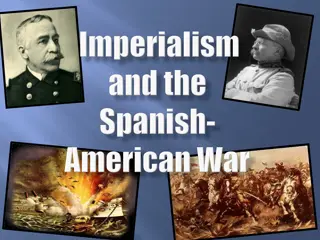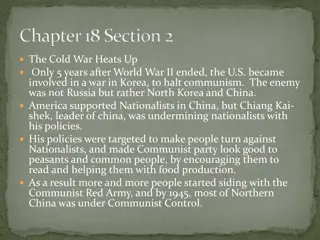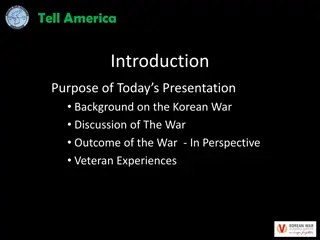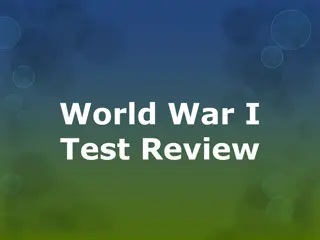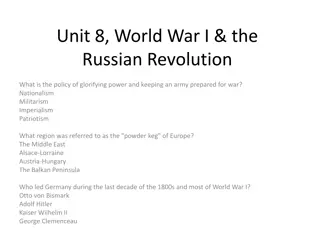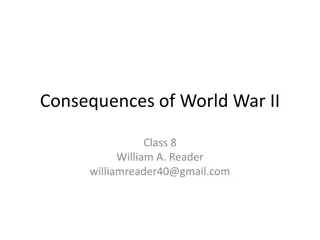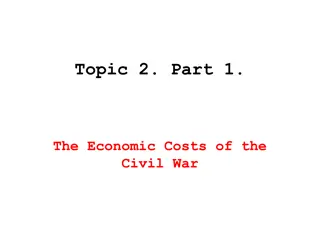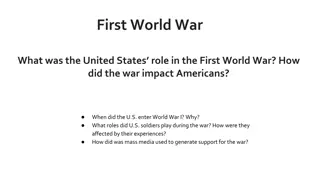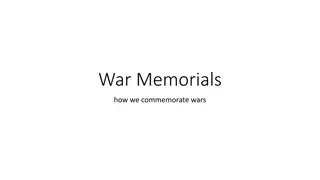Strategic Insights from 'The Art of War'
Explore the profound teachings of 'The Art of War' by Sun Tzu, covering essential principles such as strategic assessments, tactical warfare, planning sieges, and the interplay between force, emptiness, and fullness. Gain wisdom on leadership, deception, and the art of winning battles without conflict while delving into the significance of timing, knowledge, and self-awareness in the realm of warfare.
Download Presentation

Please find below an Image/Link to download the presentation.
The content on the website is provided AS IS for your information and personal use only. It may not be sold, licensed, or shared on other websites without obtaining consent from the author. Download presentation by click this link. If you encounter any issues during the download, it is possible that the publisher has removed the file from their server.
E N D
Presentation Transcript
Ground Rules 1. Punctual attendance 2. The whole book/article of the month must be read 3. Come with an open mind 4. Share your learning and listen to others 5. Keep the discussion relevant 6. Respect each others confidentiality
Introduction 771 to 476 BC The less needed war is the better Prevention is key but this requires knowledge and solutions to the problems The Art of War as a war against war Buddhists watching rotten corpses by way of removing greed Complete ruthlessness The universe is inhumane
Strategic assessments The way, weather, terrain, leadership and management When the way is righteous, people think little of dying for it Qualities of leadership The art of deception regarding competence Provoke the enemy by stirring up anger to make them forget their strategy Importance of planning: victorious warriors win before fighting
Doing Battle (any kind of advancement) Focuses on winning without conflict Should be done quickly and without ego In order to utilise the advantages of weapons you must know the disadvantages Practical aspects of war (food and provisions) Importance of fighting for rewards Use the enemy to defeat the enemy
Planning a siege & Formation Scheming is best of all > attacking alliances > attacking an army Surround the enemy if you outnumber them Attack if 5:1 Divide if 2:1 Issues with good leadership (civil and military) The importance of knowing when not to fight Knowing yourself and others What everyone knows is not called wisdom
Force, Emptiness & Fullness Tao principles: each force contains within it a bit of its opposite Imagination/creativity paired with solid knowledge Unorthodox and orthodox measures in variation Need complete order to create disorder Need complete bravery to fake cowardice The power of the force of momentum in allowing everyone to have a use no matter how timid Good warriors cause the enemy to come to them Signals and information about strategy must be secure and confusing to the enemy
Armed Struggle (direct conflict) Understand how to tip the balance in your favour Know the distances and terrain involved The situations in which it is advantageous to divide an army Be capable of firmness in your own heart Advice on predicting ambushes Don't attack an army on the way home
Adaptations, Maneuvers & Terrain Consider benefit and harm of all actions 5 dangerous traits of generals ready to die, intent on living, quick to anger, puritanical, those who love people A good general is not committed to death but doesn't expect to live Advice to avoid water How to interpret the attitudes of emissaries (and the location of birds) 6 causes of defeat
Nine Grounds Take away the opponent's foresight, preparedness, caution and time Assess for vulnerable spots Being in mortal danger focuses the mind of all Making a military force like a snake Qualities of a general Secretive, fair, orderly Keeps soldiers unaware when needed
Fire Attack & On the use of spies The uses of fire and water in contending with an opponent Anger should not be used to mobilise an army The dead cannot be restored to life Only act if beneficial Reward intelligence and foreknowledge 5 different types of spies Spies as an essential part of warfare All wars are ultimately wars of information





![❤[PDF]⚡ Civil War Talks: Further Reminiscences of George S. Bernard and His Fel](/thumb/20551/pdf-civil-war-talks-further-reminiscences-of-george-s-bernard-and-his-fel.jpg)










